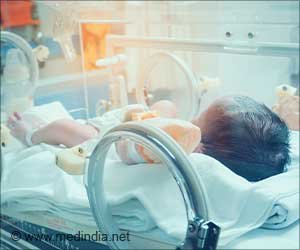Chemicals in The Vagina Can Cause Preterm Birth

“Our findings suggest that we need to look more closely at whether common environmental exposures are in fact causing preterm births and, if so, where these exposures are coming from,” says study co-leader Tal Korem, Ph.D., assistant professor in the Program for Mathematical Genomics and the Departments of Systems Biology and Obstetrics and Gynecology at Columbia. “The good news is that if these chemicals are to blame, it may be possible to limit these potentially harmful exposures.”
The findings were reported in Nature Microbiology.
Preterm Delivery is the Leading Cause of Infant Death
Preterm delivery, or birthing before 37 weeks of pregnancy, is the leading cause of infant death and can result in a range of long-term health problems. Despite substantial research, there are no strategies for predicting or avoiding spontaneous preterm delivery, which accounts for two-thirds of all preterm births.
Does Vaginal Microbiota Play a Role in Preterm Birth
Several studies have revealed that vaginal microbiota abnormalities play a role in preterm birth and other pregnancy complications. However, researchers have yet to establish a reproducible relationship between specific populations of bacteria and poor pregnancy outcomes.
The study’s co-leaders, Korem and Maayan Levy, Ph.D., of the University of Pennsylvania, decided to take a broader look at the vaginal microenvironment by examining its metabolome. The metabolome is the entire collection of tiny molecules found in a certain biological niche, including metabolites created by local cells and microbes as well as chemicals derived from outside sources. “The metabolome can be seen as a functional readout of the ecosystem as a whole,” Korem says. “Microbiome profiling can tell us who the microbes are; metabolomics gets us close to understanding what the microbes are doing.”
Vaginal Metabolome Variations among Pregnant Women
In the current study, the researchers measured over 700 different metabolites in the second-trimester metabolome of 232 pregnant women, including 80 pregnancies that ended prematurely.
The study found multiple metabolites that were significantly higher in women who had delivered early than in those who delivered at full term.
“Several of these metabolites are chemicals that are not produced by humans or microbes- what we call xenobiotics,” says Korem. “These include diethanolamine, ethyl-beta glucoside, tartrate, and ethylenediaminetetraacetic acid. While we did not identify the source of these xenobiotics in our participants, all could be found in cosmetics and hygiene products.”
Preterm Birth Prediction Using Algorithm
The scientists also created an algorithm based on metabolite levels that can predict preterm birth with high accuracy, potentially paving the way for early diagnosis.
Even though the predictions were more accurate than models based on microbiome data and maternal variables (such as age, BMI, race, preterm birth history, and past births), the new model still needs to be improved and validated before it can be utilized in the clinic.
Despite the current limitations, Korem says, “Our results demonstrate that vaginal metabolites have the potential to predict, months in advance, which women are likely to deliver early.”
Source: Medindia
Source link
#Chemicals #Vagina #Preterm #Birth



